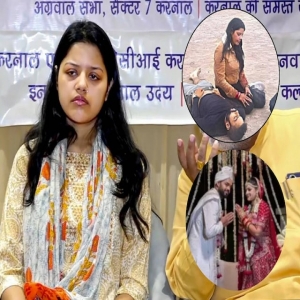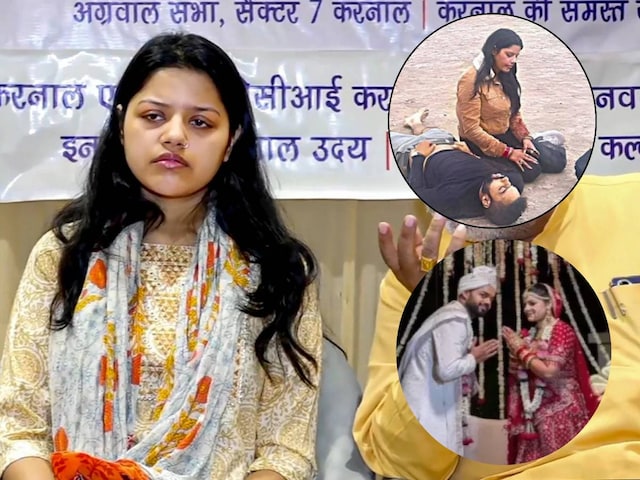
.png) Jacob Peenikaparambil
Jacob Peenikaparambil

Prime Minister Narendra Modi has often shared with the people of India his dream of becoming a developed nation by 2047. Economists and scholars believe India must make substantial progress in various sectors to realise this dream. GDP per capita needs to rise significantly—ideally above $15,000. The Indian economy must transition from agriculture and low-end services to high-value manufacturing, technology, and knowledge-based sectors. Massive infrastructure investments in transport, logistics, and energy are essential to support economic activities.
When Indian leaders speak about India becoming a developed country, they primarily focus on GDP growth. They argue that India will become the third-largest economy in the world after the United States and China by 2028. However, they remain silent on India's projected GDP per capita income, which is estimated to be only $3,720 by 2028. A general consensus places a country's per capita income range to be considered developed between $12,000 and $15,000. Germany, currently the world's third-largest economy, has a GDP per capita of $55,911. Therefore, India achieving the status of the third-largest economy without a substantial increase in per capita income is not an accurate indicator of becoming a developed country.
Beyond economic growth, India requires significant progress in other areas: universal quality education, universal access to affordable and quality healthcare, technological advancement by becoming a global hub for artificial intelligence, robotics, space technology, and clean energy, environmental sustainability, improved governance through the strengthening of the rule of law, and social equity and inclusion through drastic reductions in poverty, malnutrition, and gender and economic inequality.
Without peace and harmony, none of the above progress is possible. History bears witness to the fact that many countries have become impoverished due to war, conflicts, and disharmony. Somalia, Afghanistan, South Sudan, the Democratic Republic of Congo, and Yemen are just a few examples. Even resource-rich nations have suffered due to persistent violence and a lack of governance.
India has been a land of diversity for millennia, where people of different religions, cultures, and races have coexisted in peace and harmony. Despite occasional frictions and conflicts among various communities, unity in diversity has remained its hallmark. The devastating communal riots in the aftermath of Partition were a significant setback to India's multicultural, multireligious, and multiracial fabric. The strong leadership provided by political and religious leaders in the post-independence era helped heal the wounds of Partition and largely restore harmony, laying a strong foundation for India's development as a democracy committed to justice, equality, liberty, and fraternity.
The Ayodhya movement, which culminated in the demolition of the Babri Masjid, led to deep communal divisions in India. The Bhartiya Janata Party (BJP) came to power by capitalising on this communal divide. The failure of the Congress party to promote and uphold the core constitutional values, particularly secularism, also contributed to the increasing communal polarisation in India.
Since 2014, Indian politics has been dominated by a narrative of Hindus versus Muslims. Minorities, particularly Muslims, are portrayed by mainstream and social media as enemies of the nation and are blamed for many of the country's problems. Many policies enacted by the central government and BJP-ruled states are divisive in nature and intensify Hindu-Muslim-Christian polarisation.
Controversial laws such as the Citizenship Amendment Act (CAA) and the Waqf (Amendment) Act, passed by the central government, as well as anti-conversion and "love jihad" laws enacted by BJP-ruled states, have only deepened communal disharmony. These laws are often used as tools to further divide Indian society. Leaders of the BJP and RSS frequently talk about unifying Hindu society but rarely emphasise national unity.
The protests against the CAA, which began in late 2019, resulted in significant economic and human losses. Over 50 people died, and hundreds were injured during clashes between protesters and security forces. Property damage, especially in Delhi and Uttar Pradesh, was extensive, including burned vehicles and vandalised infrastructure. The economic impact included disruptions to businesses, transportation, and daily life in protest-affected areas. States like Assam suffered heavy economic losses due to internet shutdowns and curfews. While national figures vary, the overall toll reflected a considerable burden on public resources and communal harmony.
Protests against the Waqf (Amendment) Act also led to violence, particularly in Suti of Murshidabad in West Bengal on April 11 and 12, where three people were killed and property worth crores of rupees was destroyed. Had the central government heeded the objections of the Muslim community and incorporated suggested changes through dialogue with community representatives or considered opposition recommendations, the violence and discontent could have been avoided.
Whenever India faces external attacks, its people have united, setting aside ideological, religious, and cultural differences. After the brutal killing of 26 innocent tourists in Pahalgam, Kashmir, the entire political opposition pledged full support to the government and its actions to bring justice to the victims. People in the Kashmir Valley also protested in large numbers against the horrific murder.
Unfortunately, some communal elements used the tragedy to spread hatred against Muslims and Kashmiris. Reports surfaced of more than a dozen cases of Kashmiri vendors and students being harassed, vilified, and threatened by right-wing groups, classmates, customers, and neighbours in various Indian cities. Videos of students being chased from campuses and beaten on the streets went viral. Top leaders of the ruling party failed to appeal against targeting Kashmiris or acknowledge the widespread protests by Kashmiris against the terrorist attack.
Communal frenzy was evident in the vicious online trolling of Himanshi Narwal, wife of Lieutenant Vinay Narwal of the Navy, one of the victims of the attack, after she appealed for peace and urged people not to hate Muslims. Her statement, "We don't want people going against Muslims or Kashmiris; we want peace and only peace," was met with abusive trolls, baseless conspiracy theories, personal attacks, character assassination, and attempts to implicate her in the crime. Her stand did not align with the dominant, vengeful narrative pushed by communal groups.
The National Commission for Women was forced to intervene, condemning the trolls and urging them to stop their venomous attacks. The Commission's official handle stated that Himanshi being "targeted on social media in relation to one of her statements is extremely reprehensible and unfortunate."
All right-thinking Indians and true patriots will appreciate her stand. There is no doubt the culprits must be punished. The military operation carried out by Indian forces in the early hours of Wednesday, May 7, targeting terrorist infrastructure across Pakistan and Pakistan-occupied Kashmir (PoK), is a fitting response to the promoters and supporters of terror. At this juncture, the people of India must stand united, putting aside their differences. Any attempt to divide Indians based on religion is a betrayal of the nation.
Despite the poison of hatred being spread by communal elements, many individuals continue to courageously stand for justice, peace, and communal harmony. In this context, the Sree Narayana Manava Dharmam Trust deserves appreciation for its bold step in intervening in petitions challenging the amended Waqf law. The Trust stated, "Given the teachings of Sree Narayana Guru about the interdependent nature of the well-being of all persons and communities, the Sree Narayana Manava Dharmam Trust cannot be an idle spectator to the devastating impact of the impugned Act on the Muslim community of India and social justice in our country." The Trust argued that the law effectively abolishes Waqf in India and will leave the Muslim community without the economic and financial means to practice their religion due to the government's takeover of the Waqf mechanism.
The bishops of Kerala can learn a valuable lesson from the Sree Narayana Manava Dharmam Trust about how to stand for justice and peace, and thereby promote communal harmony. If the bishops had truly understood the mind and heart of Jesus, they would not have asked Kerala's MPs to vote in favour of the Waqf bill. When hatred is being spread to marginalise and render certain communities invisible, the Church has a responsibility to be an agent of justice, peace, and harmony. Instead of siding with powerful groups, the Church should act as a mediator and work toward reconciliation. As Jesus said, "Blessed are the peacemakers, for they shall be called the children of God" (Matthew 5:9), emphasising the importance of peacemaking in his teachings.
The conflict between India and Pakistan over Pakistan-sponsored terrorism should not be exploited to further marginalise the Muslim community or to polarise Hindus for electoral gains. On the contrary, India must demonstrate to Pakistan that its attempts to create divisions and instability in the country will not succeed.